Related Research Articles

Destry Rides Again is a 1939 American Western comedy film directed by George Marshall and starring Marlene Dietrich and James Stewart. The supporting cast includes Mischa Auer, Charles Winninger, Brian Donlevy, Allen Jenkins, Irene Hervey, Billy Gilbert, Bill Cody Jr., Lillian Yarbo, and Una Merkel.

Mary Elizabeth "Sissy" Spacek is an American actress. She is the recipient of numerous accolades, including an Academy Award, three Golden Globe Awards, a Screen Actors Guild Award, and nominations for four BAFTA Awards, three Primetime Emmy Awards, and a Grammy Award. Spacek was honored with a star on the Hollywood Walk of Fame in 2011.
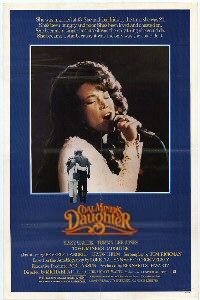
Coal Miner's Daughter is a 1980 American biographical musical film directed by Michael Apted from a screenplay written by Tom Rickman. It follows the story of country music singer Loretta Lynn from her early teen years in a poor family and getting married at 15 to her rise as one of the most influential country musicians. Based on Lynn's 1976 biography of the same name by George Vecsey, the film stars Sissy Spacek as Lynn. Tommy Lee Jones, Beverly D'Angelo and Levon Helm are featured in supporting roles. Ernest Tubb, Roy Acuff, and Minnie Pearl make cameo appearances as themselves.
George Thomas Moore Marriott was an English character actor best remembered for the series of films he made with Will Hay. His first appearance with Hay was in the film Dandy Dick (1935), but he was a significant supporting performer in Hay's films from 1936 to 1940, and while he starred with Hay during this period he played a character called "Harbottle" that was based on a character Marriott usually played. His character Harbottle was originally created by Hay when he used the character in his "The fourth form at St. Michael's" sketches in the 1920s.

Lester H. Cuneo was an American stage and silent film actor. He began acting in theatre while still in his teens. His name remains associated with the history of Western film.
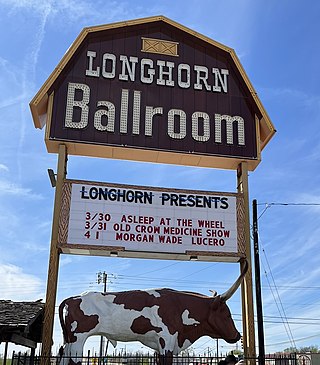
The Longhorn Ballroom in Dallas, Texas (USA) has been called, Texas' Most Historic Music Venue and since its inception has had a colorful set of proprietors. Originally built by O.L. Nelms, an eccentric Dallas millionaire, for his close friend, western swing bandleader Bob Wills, the venue opened in 1950 as Bob Wills' Ranch House. When Wills left In the early 50s Nelms leased the sprawling venue to notorious nightclub owner turned assassin Jack Ruby. Mr. Ruby eventually had a nervous breakdown and lost the lease, but he is credited with hosting some of the best black entertainers of the day including Count Basie, Ruth Brown, and Nat King Cole. The Nat King Cole show took place in 1954 in the racially segregated Jim Crow South, where an affluent black audience sat in front, in the premium seats, while the white patrons stood in the back to listen to the legend.
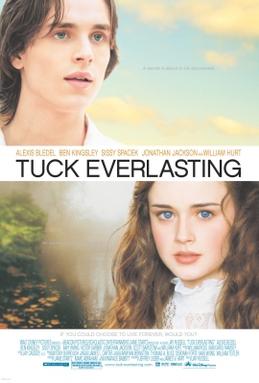
Tuck Everlasting is a 2002 American romantic fantasy drama film directed by Jay Russell and written by Jeffrey Lieber and James V. Hart, based on Natalie Babbitt's 1975 book of the same name. Narrated by Elisabeth Shue, the film stars Alexis Bledel, Ben Kingsley, Sissy Spacek, Amy Irving, Victor Garber, Jonathan Jackson, Scott Bairstow and William Hurt. The film was released in the United States on October 11, 2002.
Gaston Méliès was a French film director who worked primarily in the United States. He was the brother of the film director Georges Méliès.
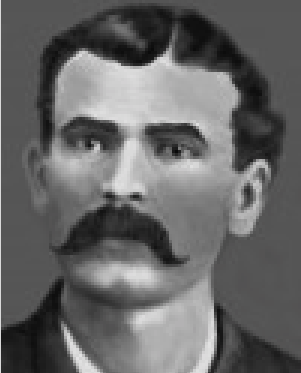
Frederick G. White was an American lawman and the first town marshal of the mining boomtown of Tombstone, Arizona Territory. White was elected to the position on January 6, 1880. At the time, Tombstone was still an emerging frontier town with fewer than 1,000 residents, and did not become an official city, with over 1,000 residents, until a year later. Before that time, White died in office following a notorious accidental shooting, and was succeeded by Virgil Earp.
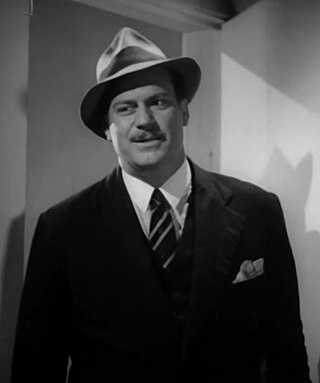
Richard Alexander was an American film character actor.
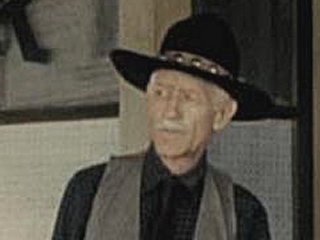
Earl Dwire, born Earl Dean Dwire, was an American character actor who appeared in more than 150 movies between 1921 and his death in 1940.

Harlem on the Prairie (1937) is American race movie, billed as the first "all-colored" Western musical. The movie reminded audiences that there were black cowboys and corrected a popular Hollywood image of an all-white Old West.

William Andrew Quirk was an American stage and silent-film actor. He performed in more than 180 films between 1909 and 1924. Born in Jersey City, New Jersey, he died in Los Angeles, California. Gem Motion Picture Company produced a series of "Billy"-titled pictures starring Quirk.
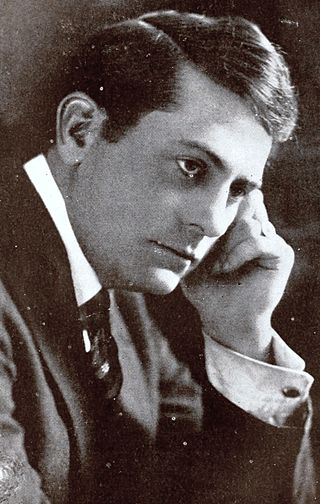
Edwin August Phillip von der Butz was an American actor, director, and screenwriter of the silent era.

John Grant Mitchell Jr. was an American actor. He appeared on Broadway from 1902 to 1939 and appeared in more than 125 films between 1930 and 1948.

Frank Sidney Hagney was an Australian actor. He is known for his work on It's a Wonderful Life (1946), Ride Him, Cowboy (1932) and The Sea Beast (1926).
The Cockeyed Cowboys of Calico County is a 1970 American comedy Western film by Universal Studios, directed by Anton Leader and Ranald MacDougall, and starring Dan Blocker and Nanette Fabray, with a supporting cast featuring Jim Backus, Mickey Rooney, Wally Cox, Jack Elam, Noah Beery, Jr. and Don "Red" Barry. MacDougal wrote the screenplay. It was originally made as a television film but the decision was made to release it to movie theaters.
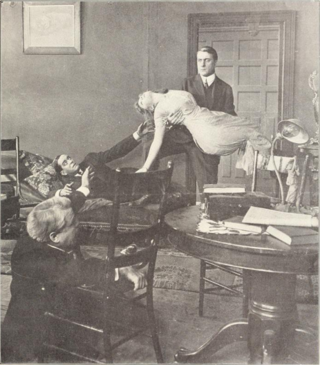
A Cave Man Wooing is a 1912 American silent comedy short film starring King Baggot and directed by Otis Turner. It was produced by Independent Moving Pictures (IMP).

The Champion Film Company was an independent production company founded in 1909 by Mark M. Dintenfass. The studio was one of the film companies that merged to form Universal Pictures.

William R. Dunn was an American actor on film and stage and in vaudeville.
References
- ↑ Algie the Miner, Moving Picture World, January – March 1912, pages 50 & 714
- ↑ The New Hippodrome, The Morning Call (Allentown, PA), March 9, 1912, page 9
- ↑ Jeremy Agnew, The Landscapes of Western Movies: A History of Filming on Location, 1900 – 1970, page 28, McFarland, Inc., 2020
- ↑ Lyric Theater ad, The Buffalo Enquirer (Buffalo, NY), March 23, 1912, page 2
- ↑ Our Arrow Theatre ad, Los Angeles Evening Express, April 8, 1912, page 18
- ↑ The Victoria, Daily Advocate(Victoria, Texas), December 4, 1914, page 5
- ↑ Series outs Hollywood movies, Springfield News-Sun (Springfield, Ohio) June 5, 2007, page 14